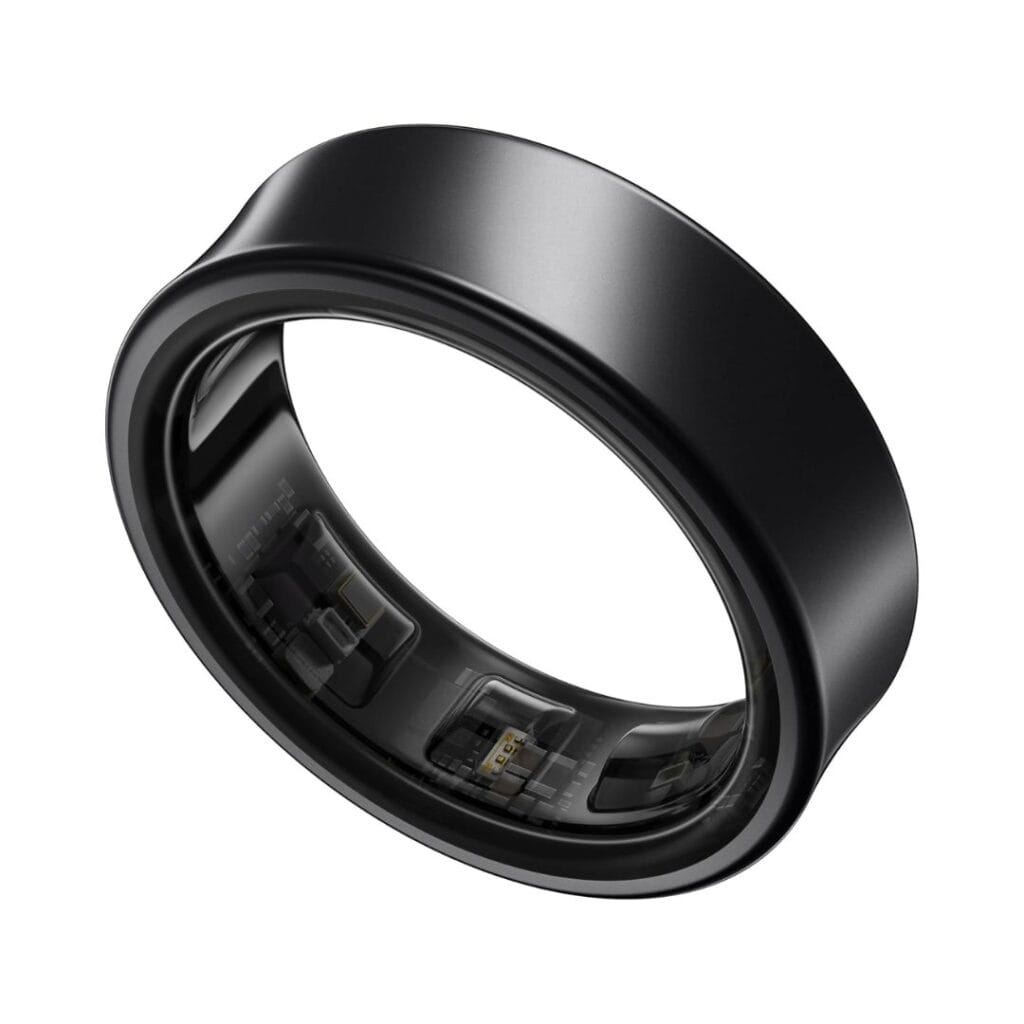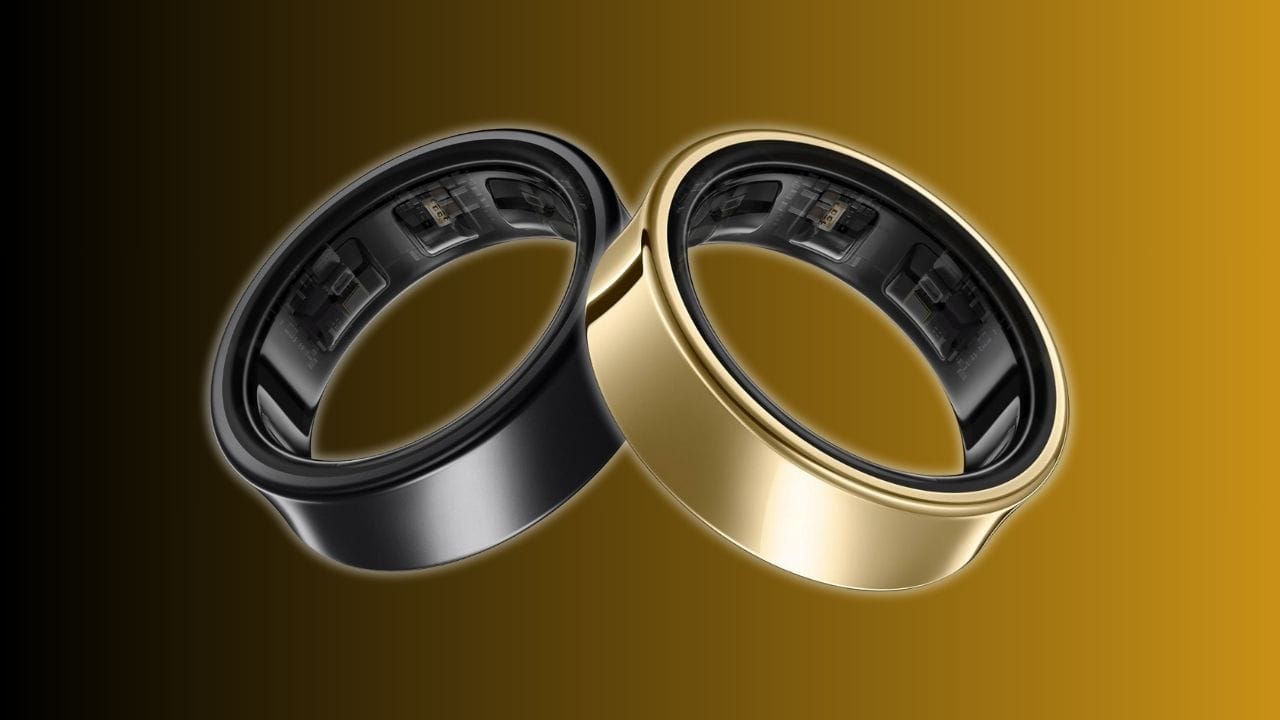We include links to products we think are useful for our readers. If you click and buy a product through one of the affiliate links on this page, we may earn a small commission. Please read our disclosure.
When I first heard about the Samsung Galaxy Ring, I was curious.
A wearable health tracker that could potentially dethrone Oura, doesn’t need a subscription, and promises accurate tracking sounded almost too good to be true. I wasn’t entirely sure if it would live up to the hype, but I decided to give it a try.
Now, after wearing it daily for months, I’m convinced it’s one of the best additions to my tech setup. Here are a few reasons why.
Quick Look at Samsung Galaxy Ring
Don’t have much time to read? Here are my thoughts.
After using the Galaxy Ring for some time, I’ve noticed several strengths and a few drawbacks. Here’s how it stacks up:
What I Liked
- Subscription-Free: Not having to pay monthly fees is a huge plus, especially when compared to devices like the Oura Ring.
- Comfortable Design: The ring is lightweight and unobtrusive, making it easy to wear all day and night without discomfort.
- Durable Build: It’s water-resistant and tough enough to handle daily activities like showering or gardening.
- Solid Battery Life: It lasts at least six days on a single charge, which reduces the hassle of constant recharging.
- Ecosystem Integration: Works seamlessly with Samsung devices like Galaxy phones and smartwatches, enhancing its functionality.
Could Be Better
- High Price Point: At $399, it’s an expensive device, and the value may depend on how much you use it.
- Accuracy Concerns: While it tracks basic health metrics well, it’s not as detailed or precise as some premium competitors like the Oura Ring.
- Ecosystem Lock-In: Some features are exclusive to Galaxy phones, limiting its appeal for users outside the Samsung ecosystem.
Samsung Galaxy Ring Review

Samsung Galaxy Ring
Priced at 399 USD. No subscription fee after purchase. Pairs well with a Galaxy Watch and Smartphone.
Available in size 5-13. Available in Titanium Gold and Titanium Black.
Design and Build Quality
The Samsung Galaxy Ring has a typical smart ring design, which is practical but not overly flashy. I chose the titanium black option, which looks sleek but slightly chunkier than a regular ring. It’s noticeable but not uncomfortable, and after a while, I hardly remember I’m wearing it.
What I appreciate about it is how durable and low-maintenance it is. I wear it all the time—whether I’m sleeping, working out, or even showering. It doesn’t require any special care, and I haven’t had to worry about scratches or water damage. It feels like a regular accessory that blends seamlessly into my daily life.
Colors only come with Titanium Black or Titanium Gold, so for color enthusiasts, don’t expect a spectrum.
Features of the Galaxy Ring
The Galaxy Ring packs a lot of functionality into such a small device. It tracks everything I’d expect from a modern health tracker, including steps, heart rate, blood oxygen levels (SPO2), temperature, and sleep patterns. One feature I’ve found particularly useful is the detailed sleep tracking. Unlike smartwatches, which I find bulky to wear overnight, the ring feels almost unnoticeable, making it perfect for capturing accurate sleep data.
Another highlight is how well it integrates with the Samsung ecosystem. Since I use a Galaxy Watch, the two devices complement each other seamlessly. For example, the ring enhances heart rate monitoring during workouts and daily activities. The battery life is impressive too—I’ve gone at least six days if I use all features; eight if I just use it casually.
Although some features are exclusive to Galaxy devices, I don’t see that as a drawback since I’m already invested in Samsung’s ecosystem. For me, the combination of simplicity and functionality makes it an ideal health tracker.
Actual Performance
The Samsung Galaxy Ring does its job as a health tracker, but it does fall short in certain areas compared to devices like the Oura Ring. While the sleep tracking is decent and gives a general idea of my sleep patterns, it doesn’t feel as detailed or as accurate as what I’ve seen from Oura. For instance, there have been times when the ring logged light sleep even though I was wide awake. It almost became a dealbreaker, but it’s something I noticed.
During workouts, the heart rate monitoring works fine for general tracking but lacks the precision I’d expect from a premium health device. In some cases, it even felt on par with cheaper alternatives like RingConn. That said, for someone who wants a basic and convenient way to monitor health metrics without overanalyzing the data, the Galaxy Ring is still a practical choice.
Battery life remains a strong point. It consistently lasts several days on a single charge, which is something I appreciate since I dislike frequent recharging.
Key Advantage
One of the key selling points of the Galaxy Ring is its lack of a subscription fee. Unlike the Oura Ring, which locks advanced features behind a monthly payment, the Galaxy Ring provides full functionality right out of the box. This upfront approach makes it appealing to anyone who doesn’t want to deal with recurring costs.
However, at $399, it’s still a significant investment. The price might feel steep, especially when compared to similar products, but it could be worth it if you’re planning to use it consistently for at least a year or longer. For someone already invested in the Samsung ecosystem, this could be a cost-effective alternative to other subscription-based wearables.
But if you’re not a Galaxy user, the device’s ecosystem exclusivity might limit its appeal. Apple’s no-subscription policy could be the reason why Samsung does the same principle (as one of its matching competitors, of course).
At the very least, it shouldn’t lag behind iOS when new features rise.
Closing Thoughts: It's a Good Buy

Samsung Galaxy Ring
Priced at $399. No subscription fee after purchase. Pairs well with a Galaxy Watch and Smartphone.
Available in size 5-13. Available in Titanium Gold and Titanium Black.
The Samsung Galaxy Ring is a solid entry into the world of health-tracking wearables, especially for those who value simplicity and convenience. Its comfortable design, durable build, and subscription-free model make it a compelling choice for anyone who wants a low-maintenance device to monitor basic health metrics.
That said, at $399, it’s not the cheapest option out there. The lack of ultra-precise tracking compared to pricier devices might be a drawback for those who want detailed health insights. Additionally, if you’re not already a Galaxy user, the feature-locking to Samsung’s ecosystem might feel limiting.
For me, the Galaxy Ring works well as part of my daily routine. It’s great for casual health tracking without needing to deal with subscriptions or bulky wearables. If you’re planning to use it consistently for at least a year and are already invested in Samsung’s products, it’s a worthwhile investment. For those outside the ecosystem or seeking top-tier tracking accuracy, it might not fully meet expectations.




